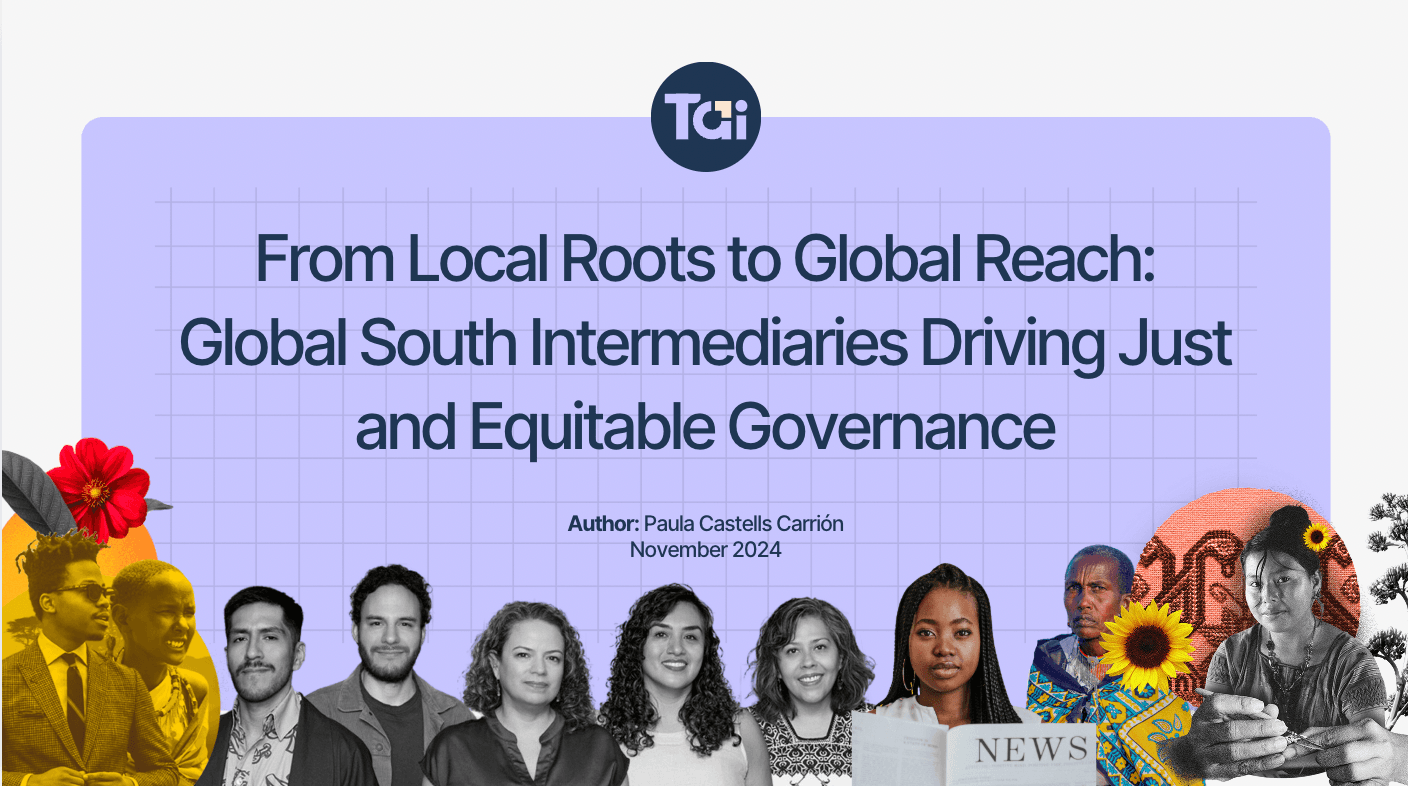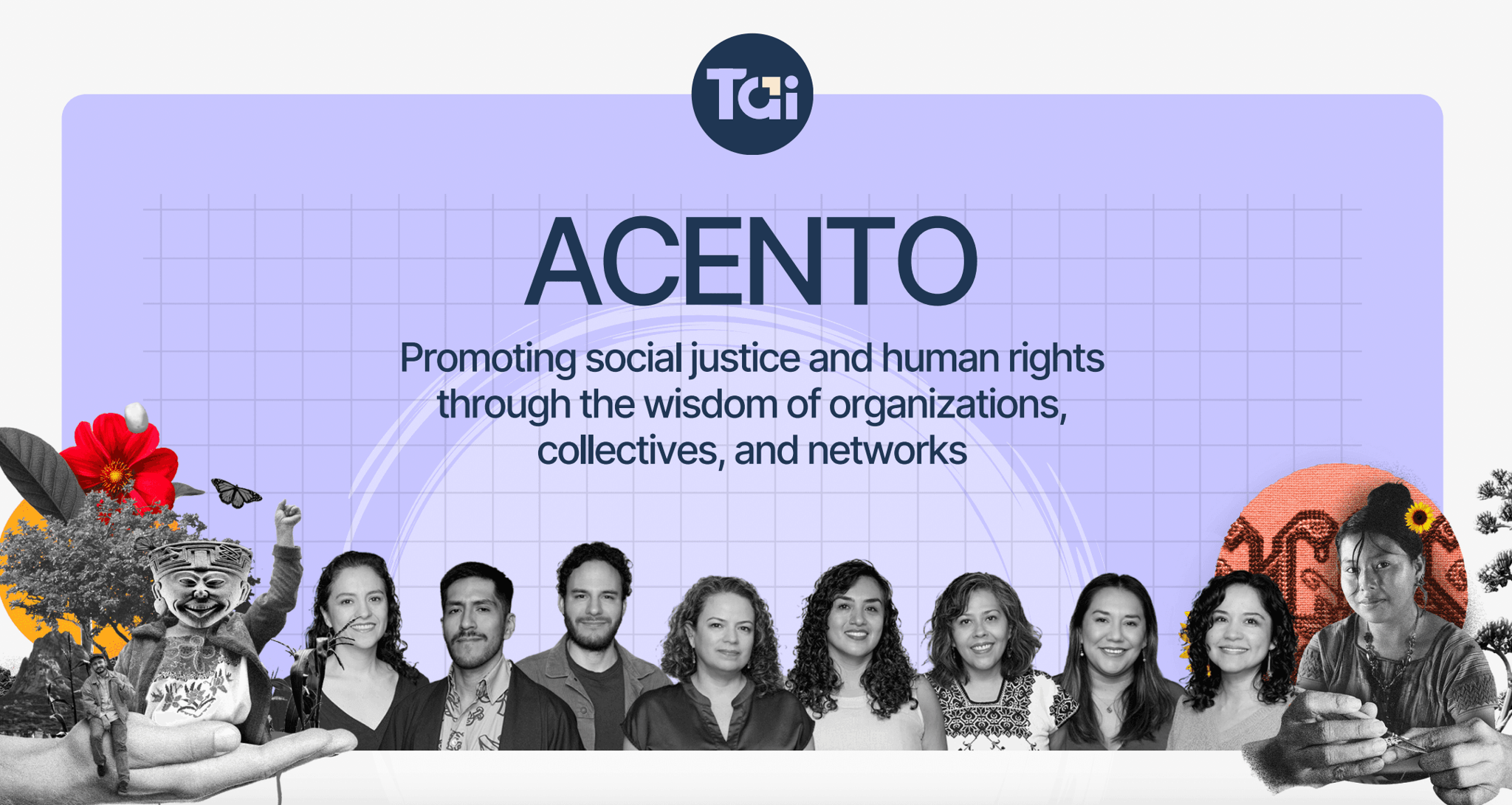In an evolving international development landscape, the push for localization has gained urgency. Global South Intermediary Organizations (GSIs) are emerging as key players, offering a promising pathway to achieving localization programming. To harness their potential, it is crucial to develop a deeper understanding of their functions, structures, and strategies. However, they should complement—not replace—direct funding relationships with grassroots organizations.
The Trust, Accountability, and Inclusion Collaborative (TAI) is excited to present this comprehensive analysis by consultant Paula Castell Carrión, highlighting the significant potential of GSIs to drive locally led solutions.
Read the FULL REPORT ONLINE or DOWNLOAD HERE
Context and Opportunity
As Global North donors seek to increase funding to frontline groups, movements, and activists in Global South contexts, GSIs emerge as strategic partners in localization programming. These organizations possess deep contextual knowledge and established networks that can help bridge the gap between international funders and local implementers. Their potential extends beyond simple fund management to include capacity building, strategic guidance, and advocacy for local priorities in grantmaking decisions. There is a growing number of GSIs fulfilling these roles, who have a track record to deliver governance-related funding to the grassroots.
In this new study, TAI´s Paula Castell Carrión examines the evolving role of Global South Intermediaries in advancing localization efforts, with a particular emphasis on achieving equitable governance outcomes.
Through a detailed investigation of 4 operational models and practical experiences, this paper aims to provide donors with actionable insights for a more effective engagement with GSIs.
Enjoy reading online? CHECK OUR ONLINE VERSION
Paula's investigation centers on six carefully selected case studies and reflects on broader practices and trends within the funding ecosystem. These cases shed light on the diverse approaches, organizational structures, and strategic interventions employed by GSIs across different contexts.
We hope that this research contributes to broader strategies on international development funding by:
Providing evidence-based insights into the effectiveness of different intermediary models.
Identifying best practices for donor-GSI partnerships.
Supporting the development of more equitable and effective governance programming
Download the six case studies below:
Want to help us spread the word on the role of intermediaries? Join us in our social media campaign on LinkedIn. Download our social media plan and visuals here.
Reach to Paula at: [email protected]






